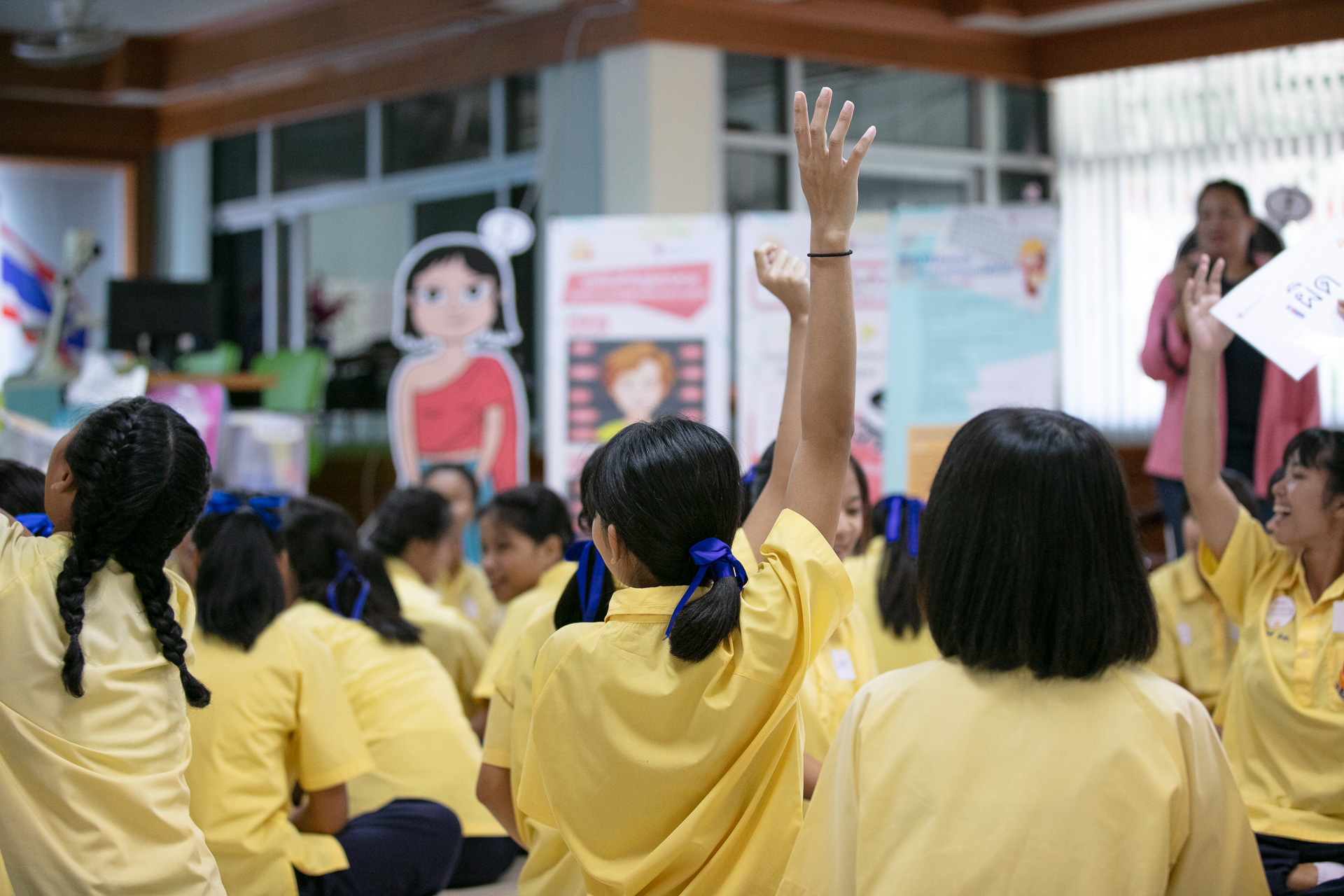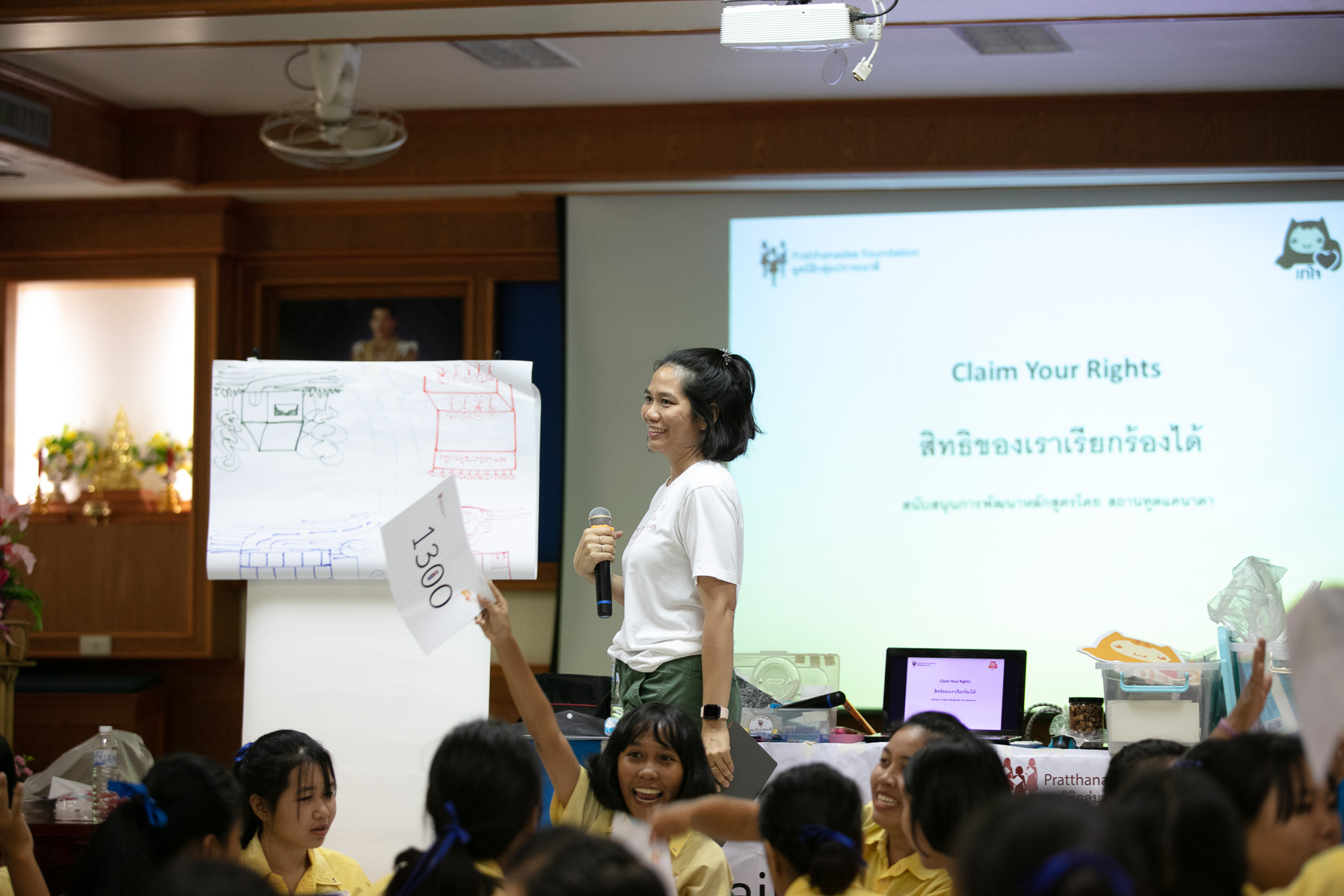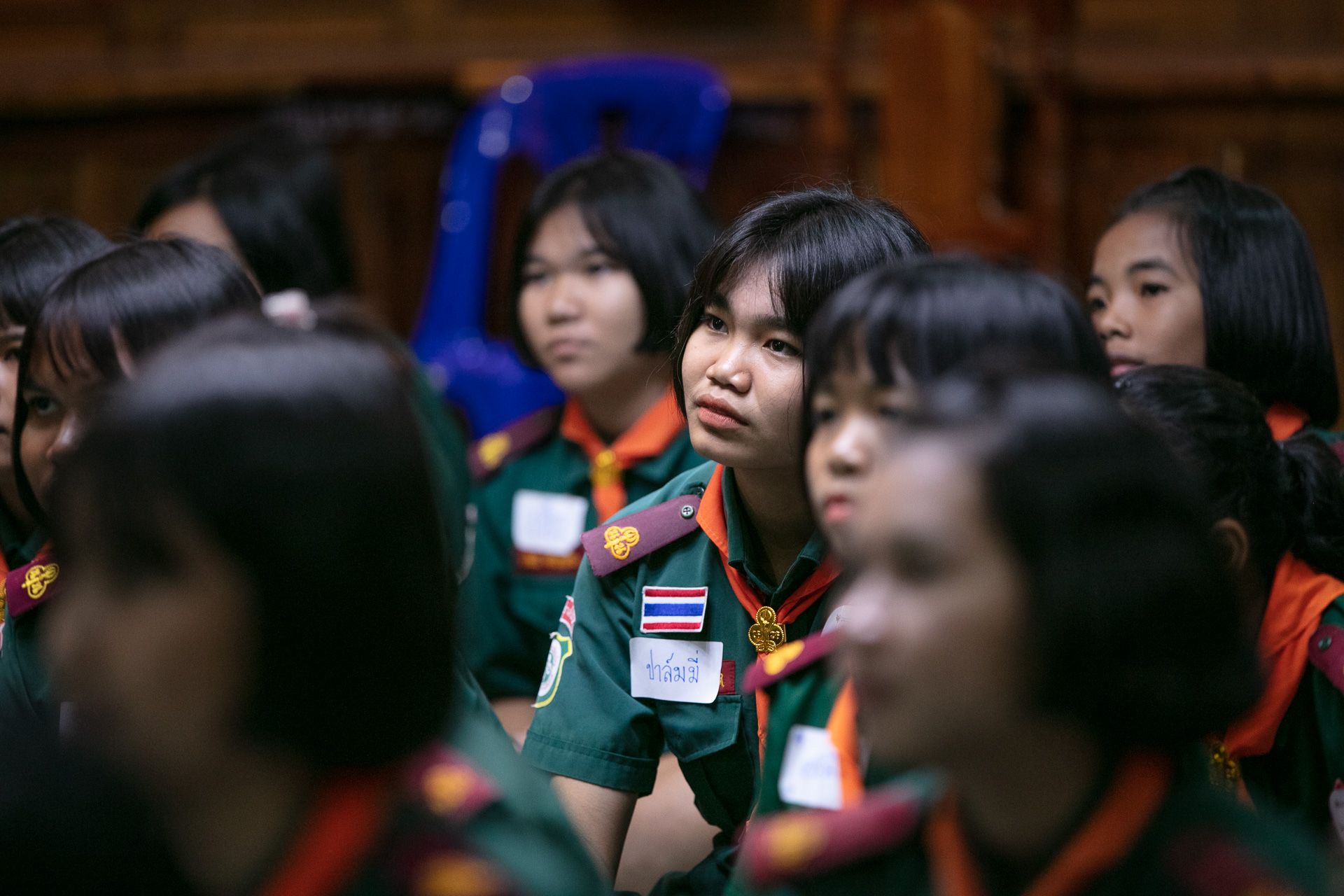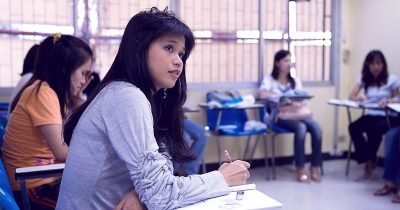
I’ve been involved with Pratthanadee to varying degrees since I first came to Thailand nearly 20 years ago. Having moved to Phuket in recent years, I’ve been wanting to catch up on how the foundation’s work in the Issan region of Thailand has progressed. Since I last visited the Ubon Ratchathani (Ubon) office five years ago, the staff had been refining the approach, focus and teaching materials for the seminars they run. These seminars target 12-14 year-old female public school students at the Mor 2-4 level (the equivalent of 8-10 graders), addressing 40-50 girls in each session. I wanted to see this newer program first-hand.
Several times a year – depending on available funding – Pratthanadee Director Beer and staff member Duang fly into town from the Bangkok office to unite with Nang from the Ubon office to conduct these trainings. Every weekday morning for 3 consecutive weeks the three of them drive out into the countryside surrounding the city– sometimes travelling as much as two hours away – to deliver these trainings and then return to Ubon the same day. It’s a grueling schedule.
In June, I flew to Ubon and observed two days; a “Planning for Success” training on a Wednesday at a high school in Si Saket, then a “Claim Your Rights” training at different school in southern Ubon province about a 2-hour drive away the following Friday.
Following are my observations on the 4 half-day trainings I attended:

“Planning for Success”
This is an introduction to career planning for young girls, an attempt to get them thinking about what they might do to maximize their opportunities after school, be that by studying further in university, trade school or by entering the workforce. The girls are given handouts that detail their various continuing education options as well as the salaries that might be expected in certain trades. They then break up into small groups to discuss their ideal careers, and then each girl is interviewed briefly about her plan to actualize that career in front of the class. Interestingly, for quite a few this appeared to be the first time they gave any serious thought about their futures. Judging from their reactions, this training seems to have made a real impression on the participants.
“Claim Your Rights”
This program is an evolution of earlier self-defense trainings that I had seen taught in my prior visit to Ubon. The new training includes self-defense tips as part of a broader program discussing different types of physical and emotional violence and how to resist them. The various online confidence and financial scams facing young Thai women are reviewed in detail. The pertinent legislation surrounding women’s rights is discussed, as are the women’s NGOs and other organizations that help promote and protect women’s rights and safety. Some basic self-defense moves are demonstrated and the comprehensive “Women’s Survival Guide” recently published by the foundation is distributed to all.
In both programs, I was struck by:
- Comprehensiveness of the information presented. Detailed handouts of pertinent information were made available so the girls did not need to take notes,
- The high quality of both the content and the manner in which it was presented. Beer’s polished, upbeat and very often humorous presentation was as good as any motivational speaker I have seen.
- The degree to which the students were engaged. In both seminars each of the 50 or so attendees would take the microphone and be interviewed. For the vast majority this was the first time standing up in front of an audience of any kind. Many of them were quite thoughtful in their responses while others were nearly paralyzed with fright, but clearly all benefited from the experience.
As I told the staff afterwards, I was impressed and at times moved by what I observed. I truly believe these trainings, as brief as they are, are so very important because they address some of the significant gaps in the Thai education system and relatively (compared to the West) uninvolved rural parenting. There are still tens of thousands of adolescent girls at hundreds of schools who could greatly benefit from exposure to these trainings.
From what I can see, there are a few challenges to the continued availability of these programs:
- Budget: each year new funding must be sought, as the program is not fully funded at the start of each year. According to the staff, the costs of each training is about THB 15,000 per workshop. The foundation does not generate enough funds to support this program unless donors specifically choose to support it.
- Logistics: as suitable schools with adequate female student populations are exhausted in the areas nearest to the town of Ubon, the team must travel further into the countryside to conduct the trainings and then return to Ubon at the end of the day. This sometimes requires as much as 5 hours of driving in a day. This is done Monday through Friday for 3 grueling weeks.
To conclude, the staff of Pratthanadee has a lot to be proud of. I’m hoping that as word spreads about this program it can attract more funding and be continuously developed and expanded in the future.
Photographs: Kurt Heck






